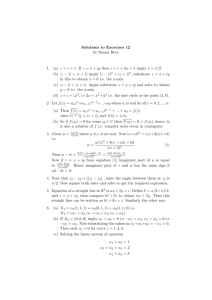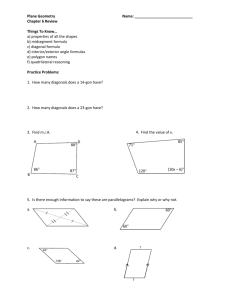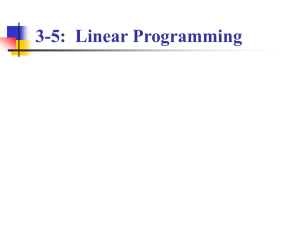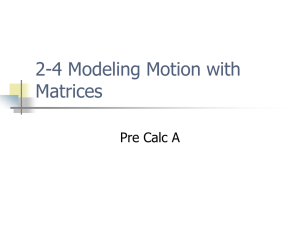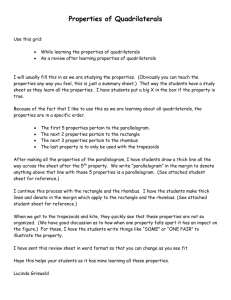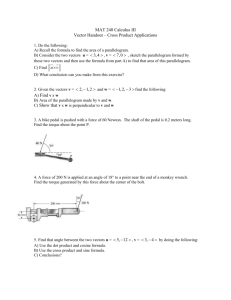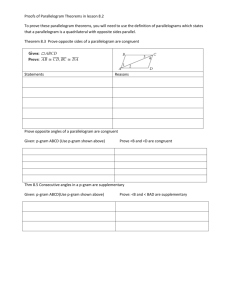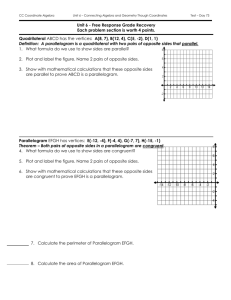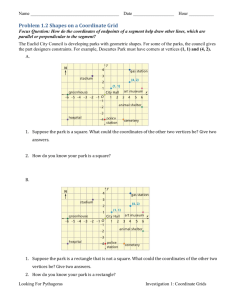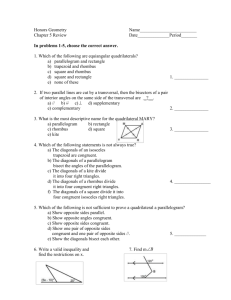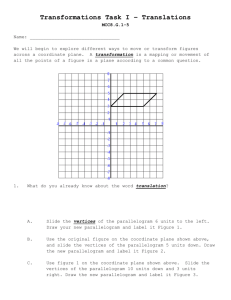File
advertisement
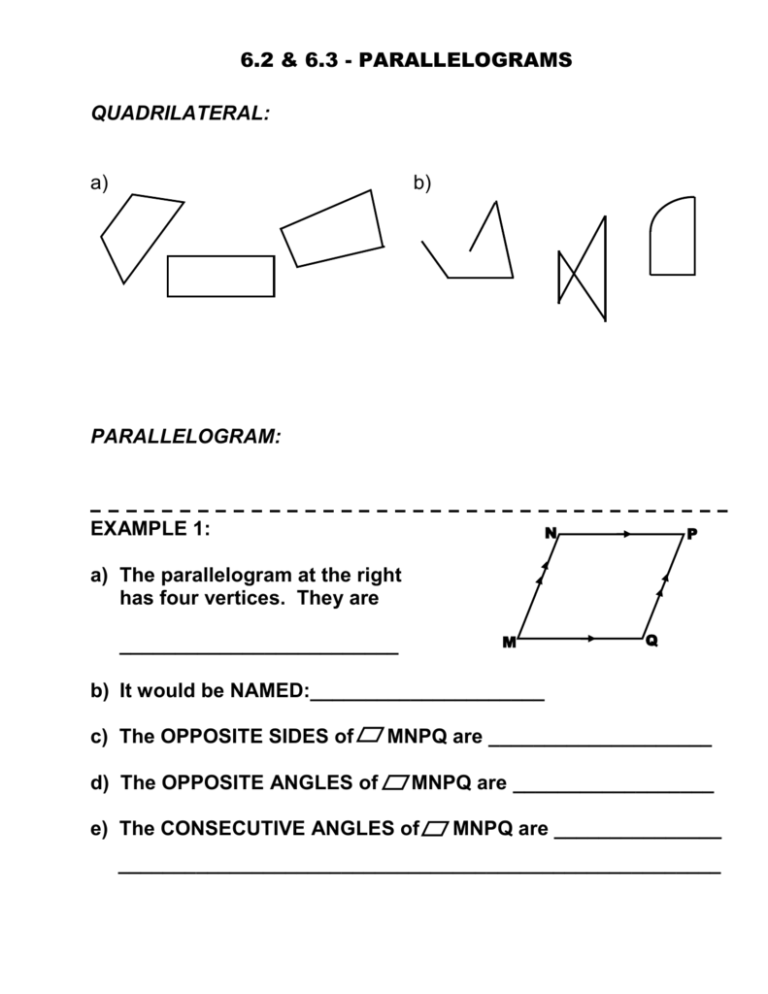
6.2 & 6.3 - PARALLELOGRAMS QUADRILATERAL: a) b) PARALLELOGRAM: EXAMPLE 1: N P a) The parallelogram at the right has four vertices. They are M _________________________ Q b) It would be NAMED:_____________________ c) The OPPOSITE SIDES of d) The OPPOSITE ANGLES of MNPQ are ____________________ MNPQ are __________________ e) The CONSECUTIVE ANGLES of MNPQ are _______________ ______________________________________________________ N P Q M Using MNPQ, what conjectures can you make about the following: a) OPPOSITE SIDES ___________________________________________________ ___________________________________________________ b) OPPOSITE ANGLES ___________________________________________________ c) CONSECUTIVE ANGLES ___________________________________________________ When polygons have more than three sides, they have diagonals. DIAGONAL: T EXAMPLE 2: Name the following. B D T S O G C A C L S O D A S Vertices: __________ Name: __________ Opposite Vertices: __________ Vertices: __________ Name: __________ Opposite Vertices: __________ Vertices: __________ Name: __________ Opposite Vertices: __________ Vertices: __________ Name: __________ Opposite Vertices: __________ Diagonals: __________ Diagonals: __________ Diagonals: __________ Diagonals: __________ BISECT: Diagonals of a parallelogram bisect each other. Thus, parallelograms have five properties. They are: 1)_______________________________________________________ 2)_______________________________________________________ 3)_______________________________________________________ 4)_______________________________________________________ 5)_______________________________________________________ EXAMPLE 3: Complete each statement regarding the parallelogram below. a) Name the parallelogram:__________ D b) AB ________ c) DA ________ d) CDA ________ e) DE ________ A E C B EXAMPLE 4: If ABCD is a parallelogram, mA = x and mD = (2x – 3), find the value of ‘x’. EXAMPLE 5: XYZW is a parallelogram with diagonals XZ and YW that intersect at point A. If XA = 3m and ZA = 5m – 4, and YW = 10m, find ‘m’. MORE EXAMPLES: For each parallelogram, find the values of ‘x’, ‘y’, and ‘z’. 6. 7. 8. y 120 z x y 80 y 35 x z x = ________; y = ________; x = ________; y = ________; z = ________ z = ________ x 70 z 30 x = ________; y = ________; z = ________ EXAMPLE 9: WXYZ is a parallelogram. If mZWX = b and mWXY = d, find the values of ‘a’, ‘b’, ‘c’, and ‘d’. X 2c W b = ________ 15 18 a Z 31 22 a = ________ c = ________ Y d = ________
